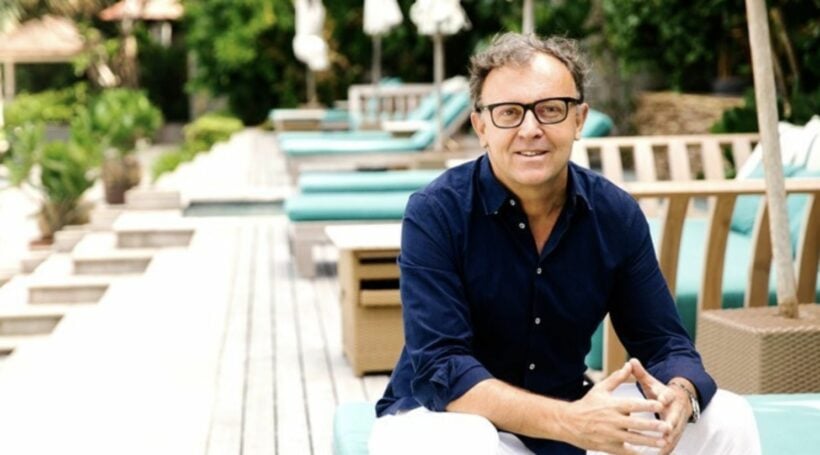When hoteliers emerge from 2020, the business will be hard

OPINION
Is it time re-imagine the guest relationship?
Globally, more than a hundred million travel and hospitality jobs will be lost in 2020 due to Covid-19. Here in Phuket, where I moved in 1988 as the opening general manager at Amanpuri, we have seen as many as 60,000 job losses in the hotel sector alone, which accounts for 86,000 registered rooms, and at this moment there is no light at the end of the tunnel, nor any date for Phuket-bound International flights on the horizon.
More than four months have passed with no local infections on Phuket. Yet passenger arrivals have plunged and there are no imminent signs of recovery, despite the country opening up to domestic air travel and guests from Bangkok becoming our “weekend warriors”.
Thailand deserves high praise for its decisive actions in late March that successfully managed the spread of Covid-19 yet in closing the kingdom to all non-resident foreigners, Phuket island now finds itself at an inflexion point as local demand cannot stem the dramatic losses on Phuket, nor reverse the rapidly escalating financial and social crisis, especially in the tourist town like Patong, Kata and Karon, etc.
From the very earliest days at Amanresorts, founder Adrian Zecha schooled us to make guests feel as relaxed as if they were staying in the home of a friend, which built an experience that wasn’t purely transactional, and I feel we took this even further at Trisara.
Over 30 years dealing with guests on Phuket, it’s clear that our is a business built on meaningful human connections, and as travellers start to move again in 2021 we have a unique opportunity to reconsider a few cookie cutter policies that annoy guests.
Its time to get our staff back to work, for restaurants and tourist business to reopen so that Phuket can breathe again.
As President of the Phuket Hotels Association, our 78 members to prepare for the inevitable return of international arrivals. After several aborted plans, the Thai government is considering ‘green bridges’ or “bubbles” that may allow entry to foreigners from countries or regions with little or no Covid-19 infections, hopefully from countries such as New Zealand, Singapore, Taiwan, China and Australia.
However, It’s going to be a very slow climb back to any reasonable numbers – thus a buyer’s market for years and those hotels that create even more special experiences, and soften some of the policies born in the 1990’s when it was a seller’s market, will emerge with greater guest experiences and social media will spread these in a positive way.
With this in mind, I propose we offer a new “Guest Bill of Rights”.
• Frontline staff needs to be empowered to make more decisions, such as giving guests reasonable refunds or credit when they complain about an actual mistake. We all know felt the irritation as the last impression at check-out, with your flight take-off time looming, as the reception staff disappears to ask an invisible manager about removing an erroneous charge for that Toblerone you didn’t eat.
• Overcharging for cookie-cutter minibars is over. We can and should customise the minibar with healthy (and not so healthy, this is a holiday after all) options including authentic, hygienic and plastic-free packaged local treats. Guests would buy more too, as mini bars are mostly poor investments. My favourite is the totally free local mini bar at The Greenwich, Robert De Niro’s hotel in New York.
• No more ‘nickel and diming’ on the hotel bill. We owe it to our guests to stop profiting off necessary conveniences like bottled water with breakfast, Internet and hotel laundry.
• Goodbye to 50% or even 100% room charges for late check-outs. Let’s be better at allocating rooms. There should always be a private space for guests who arrive before 2 pm and if hotels are not 100% full, guests should be able to leave after midday without being whacked with a half-day charge.
• Breakfast should be included, full stop, and let breakfast finish late. Since there is nothing more luxurious than a long, relaxed breakfast on a holiday, guests should not have to rush down to their first meal of the day simply because the chef wants to start prepping for lunch at 10 am.
• We can and must protect our fragile Island, the planet at the same time. Drinking water should be in glass bottles, plentiful and complimentary. There must be a unilateral end to plastic shampoo bottles and laundered garments shrouded in cling plastic have to go. In Phuket, we challenged our member hotels to remove plastic water bottles in 2018, which resulted in a reduction of six million plastic bottles from our landfills.
Our industry’s humble beginnings offer valuable lessons for any hotel’s future success. What was not optional for a medieval innkeeper should guide the 21st-century hotelier: buy local, being support for our local communities, engagement with and protection of the local environment.
Are you checking in?
About the author – Anthony C.J. Lark
• Founding and existing President of The Phuket Hotels Association, focusing on Sustainability, education of Thai students in hospitality schools and destination marketing for the 78 member hotels.
• 32 years in development and management of S.E. Asia’s finest resorts and hotels, including openings of Amanpuri – Phuket, Amandari – Bali, The Strand – Myanmar, Trisara – Phuket, including Phuket’s first and only Michelin Star restaurant at Trisara.
• Multi-year recipient of “World’s Best General Manager” – Gallivanters Guide, and many World’s Best resort accolades in Conde Naste Traveler, Robb Report and Travel and Leisure, for Amanpuri and Trisara.
Anthony now owns and runs his own luxury hospitality company focused on Resort and Residential Villas design and master plan concepts, management auditing of existing properties, supported by world-class associates from many fields.
Latest Thailand News
Follow The Thaiger on Google News:


























